Proposed Dunwoody Menorah Policy Draws Criticism
A new proposed policy in Dunwoody governing holiday symbols on government property has draw criticism for suggesting a ban on the menorah, while allowing Christmas trees.
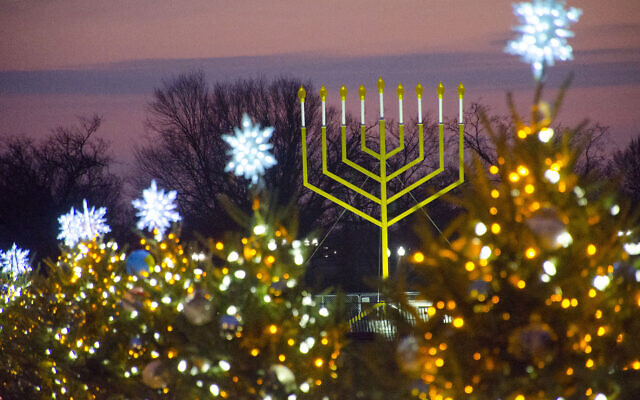
A number of community members are upset about a recent proposed policy in Dunwoody that would ban religious symbols, including Chanukiyah — colloquially called menorah — on government property but permit “holiday” trees, wreaths and Santa to be displayed. The AJT spoke with a few attorneys and community and religious leaders to learn more about both the legal and ethical challenges to the potential policy.
First discussed at the Oct. 28 City Council meeting, the restriction is a response to a citizen’s request to put up a nativity scene, or crèche, as part of the city’s holiday displays, which have traditionally included a Christmas tree and a menorah among other symbols, according to Reporter Newspapers. The matter was tabled until the next council meeting Nov. 18.
The core legal issue at play is contained within the First Amendment to the U.S. Constitution, namely the establishment clause, which prohibits government actions from establishing a state religion.
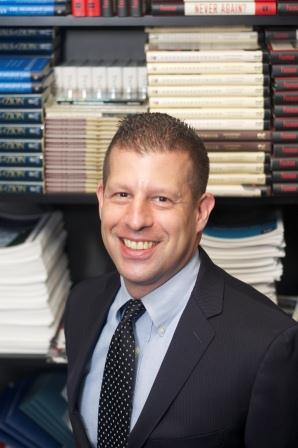
David Barkey, senior and Southeastern counsel for the ADL, explained that a nativity scene is described as a religious symbol by the U.S. Supreme Court in County of Allegheny vs. American Civil Liberties Union.
“The court said basically that a nativity scene is purely religious and a standalone display of it is unconstitutional,” he said, but noted that in the same case, the court ruled that, “Generally when it comes to a menorah, what the court has said is that it has both secular and religious meanings.”
Barkey explained that when a menorah is placed on display with other secular holiday symbols, “Christmas trees, candy canes, wreaths, et cetera, the overall message is not a religious message and it’s constitutionally permissible.”
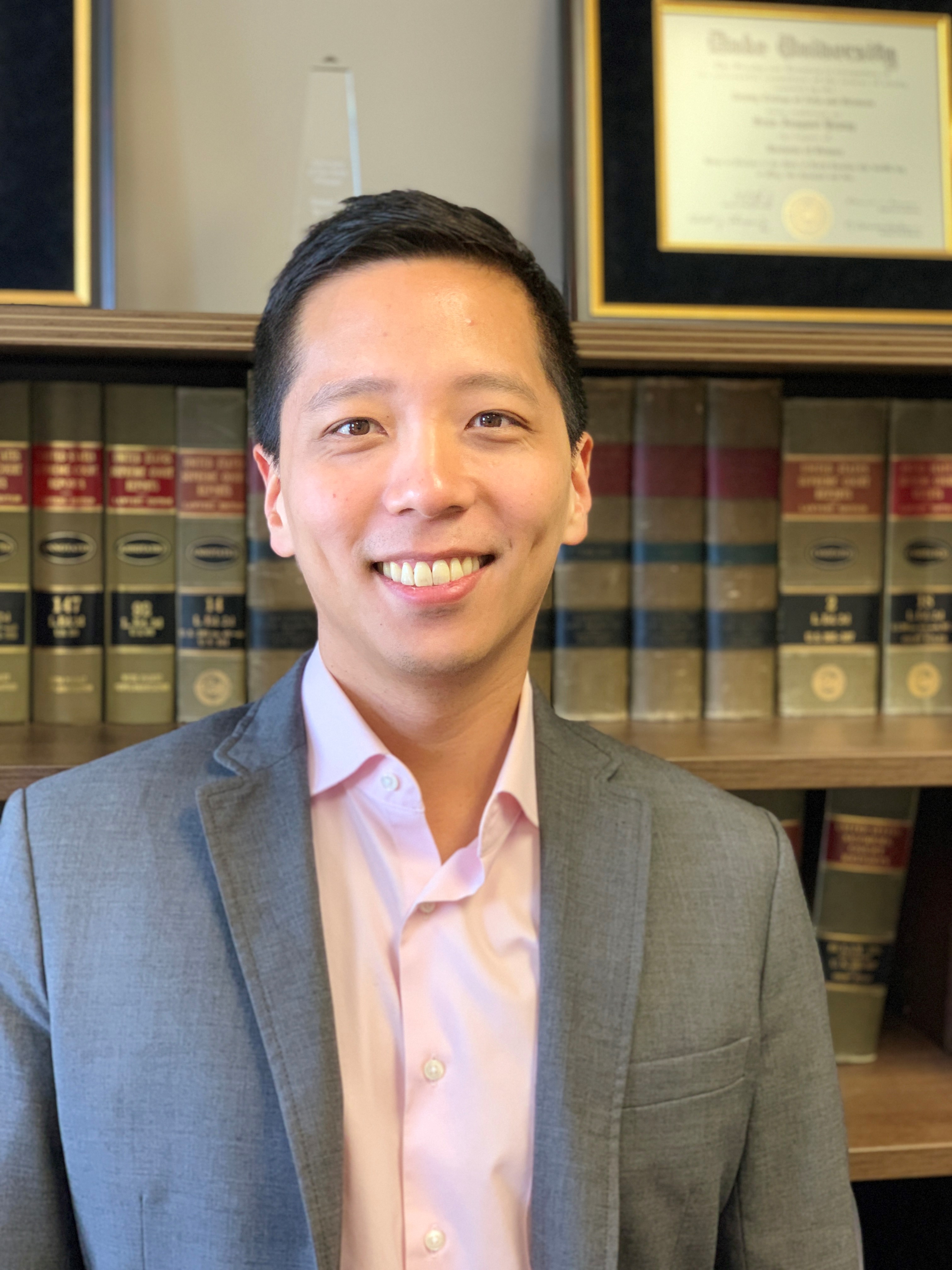
Sean J. Young, legal director of the ACLU of Georgia, explained that other holiday symbols were deemed to be secular in nature.
“Some courts have considered Santa Claus, Christmas trees and wreaths to be secular in nature,” he said. “Whether certain things are or are not religious is most certainly an ongoing issue that courts are dealing with. … We do need to scrutinize carefully when governments use taxpayer dollars to promote imagery.”
Edward Mitchell, executive director of the Council on American-Islamic Relations of Georgia, called the policy, “unfair and unconstitutional.”
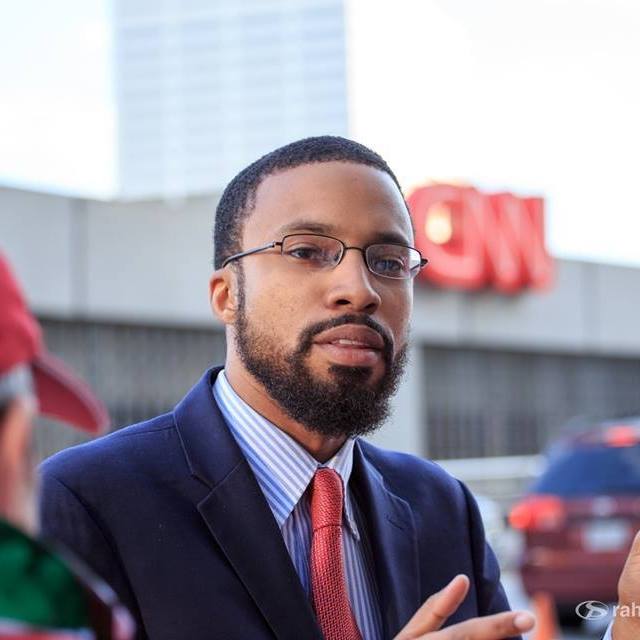
“The city can either ban all religious symbols, or permit all religious symbols. … If the city doesn’t want to ban all religious displays going forward, it must allow members of the community to showcase symbols from a variety of secular and religious holidays throughout the year, including Christmas, Hanukkah, Ramadan, and Kwanza,” he said.
Lynn Deutsch, Dunwoody Jewish mayor-elect, was among the city council members who voted to delay the policy.
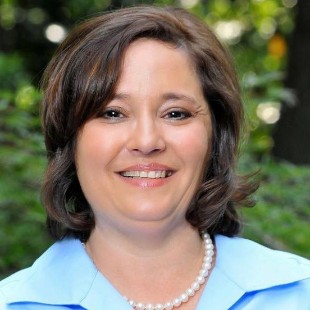
“I frankly don’t think it’s very well thought out,” she said. “I’m not sure we really needed a policy. I think common sense should prevail, and I think there’s a way to have objects that are religiously significant displayed in a way that isn’t religious.”
City Council Member Pam Tallmadge organized a gathering of religious leaders that took place Tuesday evening. Also in attendance were Council Members Tom Lambert and Deutsch (only three council members are allowed at meetings outside of formal council meetings) and Eric Linton and Jay Vinicki, city manager and assistant city manager, respectively.
“I have been wanting to get them together since it hasn’t happened in a few years,” Tallmadge said, referring to the spiritual leaders. “This really brought it to the front burner with a topic for discussion on the agenda.”
For more information on that gathering keep an eye on the AJT’s website.
Rabbis Spike Anderson of Temple Emanu-El and Mark Zimmerman of Congregation Beth Shalom were among the leaders attending the event. They both spoke to the AJT about their thoughts on the proposal and what they hoped to gain from the meeting.
Zimmerman was shocked to learn of the proposal.
“I was confused initially because I’m a chaplain with the Dunwoody Police Department and I also participate with other ministers in the annual light-up Dunwoody event, where a menorah was lit along with a Christmas tree.”
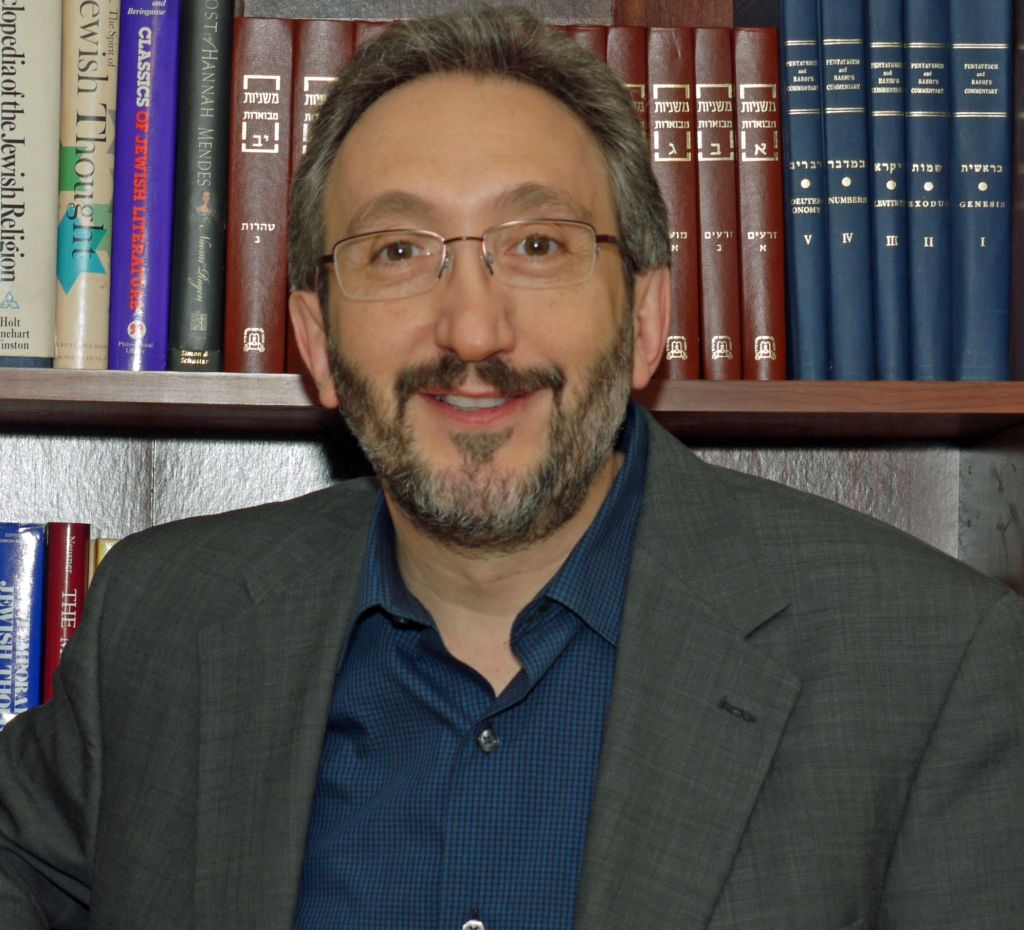
Anderson was also disappointed at the message the new policy would send.
“Public spaces with Jewish populations ought to reflect Jewish sensitivities,” Anderson said. “I realize that the Supreme Court has ruled that Christmas trees are not religious symbols, but I think for the average Jewish person, we see them as religious, not just an American cultural icon.”
Zimmerman echoed that sentiment, that while Christmas trees and wreaths may be legally secular, that’s not the perception, especially to those of other faiths.
“It’s obviously not a purely secular thing,” he emphasized. “When you have the government recognizing a Christian holiday, but then come to the Jewish holiday, and say, ‘We can’t display that,’ it undermines the Jewish community.”
Zimmerman also said that he did not believe that the intent of the policy was to single out the menorah.
Anderson added, “I think it needs to be clear that Jews are a part of this community and we should be recognized if there’s going to be a display.”



comments